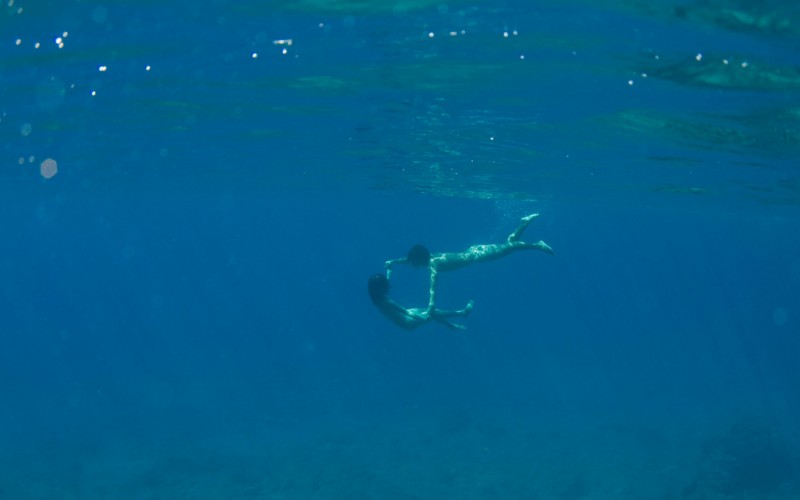Ævafornar hefðir varðandi náttúruna eru enn í gildi á japönsku eyjunni Amami í heittempraða beltinu. Á meðan hinni fornu tungldansahátíð stendur í eynni, uppgötvar hinn 16 ára gamli Kaito lík í sjónum. Kærastan hans reynir að hjálpa honum að skilja hvað þessi dularfulli atburður þýðir. Saman upplifa Kaito og Kyoko hina samtvinnuðu hringrás lífs, dauða og ástarinnar og fullorðnast í leiðinni.
Myndin er opnunarmynd Japanskra kvikmyndadaga 2015.
English
On the subtropical Japanese island of Amami, traditions about nature remain eternal. During the full-moon night of traditional dances in August, 16-year-old Kaito discovers a dead body floating in the sea. His girlfriend Kyoko will attempt to help him understand this mysterious discovery. Together, Kaito and Kyoko will learn to become adults by experiencing the interwoven cycles of life, death and love.
Still the Water was screened at the international film festival in Cannes in 2014 and is directed by recently famous director Naomi Kawase. She was the youngest winner of the la Caméra d’Or award (best new director) at the 1997 Cannes Film Festival for her first 35 mm film, Suzaku.
Kawase’s work is heavily concerned with the distorted space between fiction and non-fiction that has occurred within the state of modern Japanese society, approaching “fiction with a documentarian’s gaze.“ She employs this documentary-realism to focus on individuals of lesser cultural status. This theme is also connected to her own personal reflections on contemporary issues in the current climate of economic depression such as the declining birthrate, alienation, and the collapse of traditional family structures.
The film is the opening film of Japanese Film Days 2015.

















